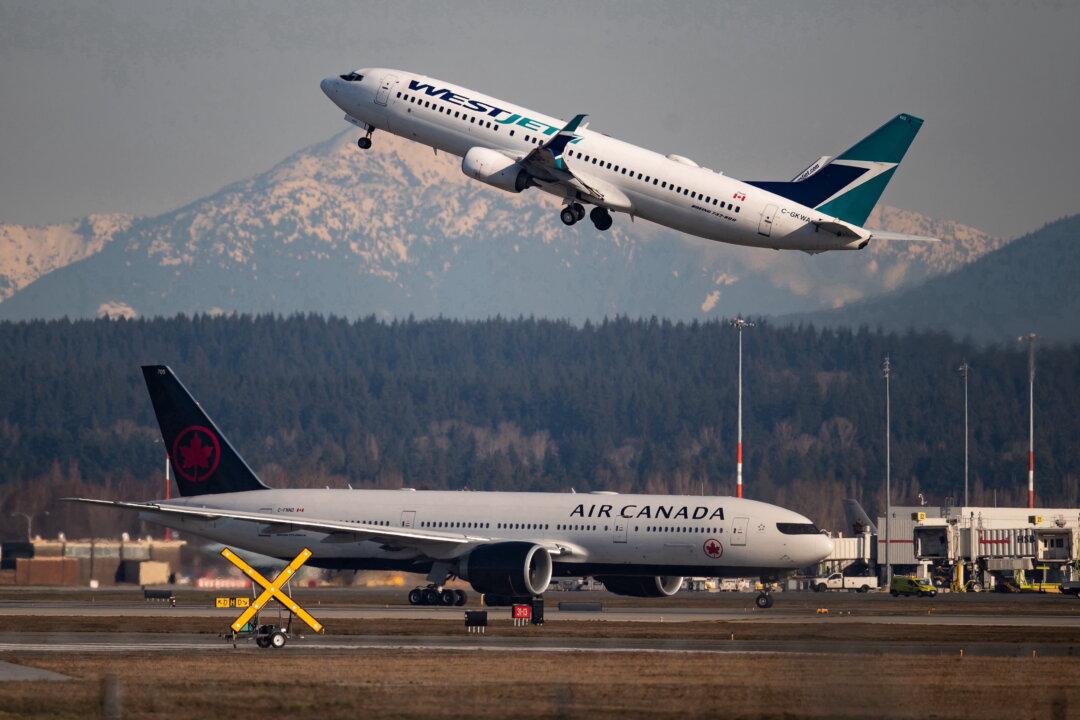Canada’s Competition Bureau will be looking into the state of competitiveness in the country’s airline industry.
The market study will focus on three key topics, according to a July 29 government news release. These include the state of competition in domestic air passenger services, barriers to entry into the industry, and hindrances for Canadians looking to make informed travel choices.





